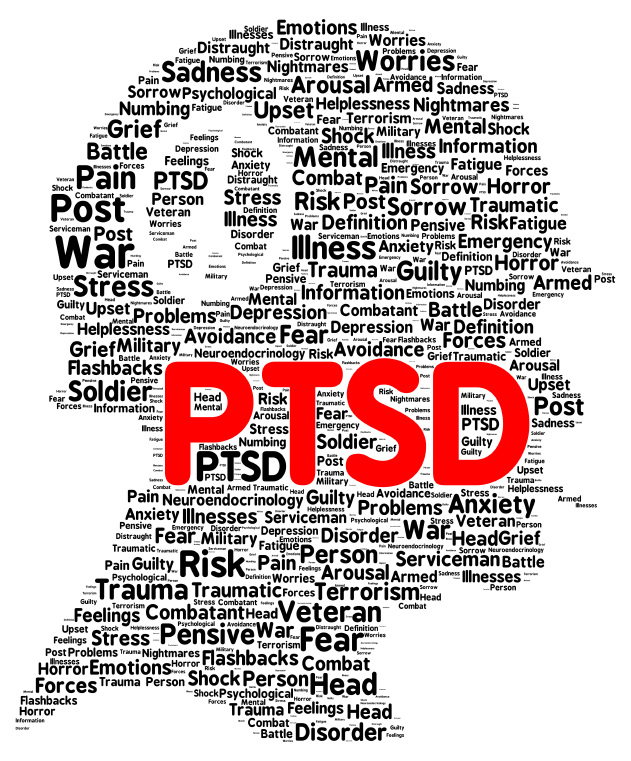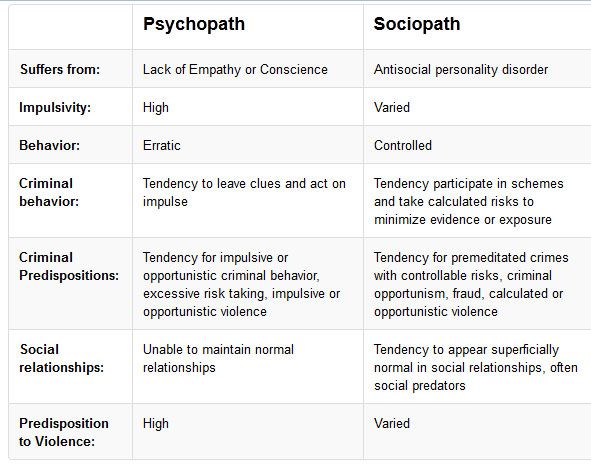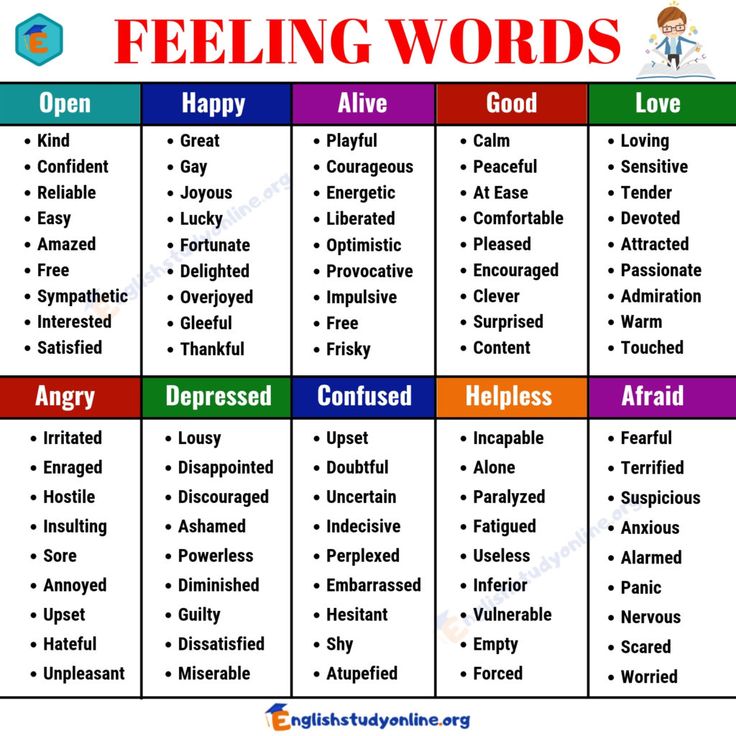How to find a good psychologist
How to choose a psychologist
At some time in our lives, each of us may feel overwhelmed and may need help dealing with our problems. According to the National Institute of Mental Health, more than 30 million Americans need help dealing with feelings and problems that seem beyond their control — problems with a marriage or relationship, a family situation or dealing with losing a job, the death of a loved one, depression, stress, burnout or substance abuse. Those losses and stresses of daily living can at times be significantly debilitating. Sometimes we need outside help from a trained, licensed professional in order to work through these problems. Through therapy, psychologists help millions of Americans of all ages live healthier, more productive lives.
Consider therapy if...
-
You feel an overwhelming and prolonged sense of helplessness and sadness, and your problems do not seem to get better despite your efforts and help from family and friends.
-
You are finding it difficult to carry out everyday activities: for example, you are unable to concentrate on assignments at work, and your job performance is suffering as a result.
-
You worry excessively, expect the worst or are constantly on edge.
-
Your actions are harmful to yourself or to others: for instance, you are drinking too much alcohol, abusing drugs or becoming overly argumentative and aggressive.
What is a psychologist and what is psychotherapy?
Psychologists who specialize in psychotherapy and other forms of psychological treatment are highly trained professionals with expertise in the areas of human behavior, mental health assessment, diagnosis and treatment, and behavior change. Psychologists work with patients to change their feelings and attitudes and help them develop healthier, more effective patterns of behavior.
Psychologists apply scientifically validated procedures to help people change their thoughts, emotions and behaviors. Psychotherapy is a collaborative effort between an individual and a psychologist. It provides a supportive environment to talk openly and confidentially about concerns and feelings. Psychologists consider maintaining your confidentiality extremely important and will answer your questions regarding those rare circumstances when confidential information must be shared.
Psychologists consider maintaining your confidentiality extremely important and will answer your questions regarding those rare circumstances when confidential information must be shared.
How do I find a psychologist?
To find a psychologist, ask your physician or another health professional. Call your local or state psychological association. Consult a local university or college department of psychology. Ask family and friends. Contact your area community mental health center. Inquire at your church or synagogue. Or, use APA's Psychologist Locator service.
What to consider when making the choice
Psychologists and clients work together. The right match is important. Most psychologists agree that an important factor in determining whether or not to work with a particular psychologist, once that psychologist's credentials and competence are established, is your level of personal comfort with that psychologist. A good rapport with your psychologist is critical. Choose one with whom you feel comfortable and at ease.
Choose one with whom you feel comfortable and at ease.
Questions to ask
-
Are you a licensed psychologist? How many years have you been practicing psychology?
-
I have been feeling (anxious, tense, depressed, etc.) and I'm having problems (with my job, my marriage, eating, sleeping, etc.). What experience do you have helping people with these types of problems?
-
What are your areas of expertise — for example, working with children and families?
-
What kinds of treatments do you use, and have they been proven effective for dealing with my kind of problem or issue?
-
What are your fees? (Fees are usually based on a 45-minute to 50-minute session.) Do you have a sliding-scale fee policy?
-
What types of insurance do you accept? Will you accept direct billing to or payment from my insurance company? Are you affiliated with any managed care organizations? Do you accept Medicare or Medicaid insurance?
Finances
Many insurance companies provide coverage for mental health services. If you have private health insurance coverage (typically through an employer), check with your insurance company to see if mental health services are covered and, if so, how you may obtain these benefits. This also applies to persons enrolled in HMOs and other types of managed care plans. Find out how much the insurance company will reimburse for mental health services and what limitations on the use of benefits may apply.
If you have private health insurance coverage (typically through an employer), check with your insurance company to see if mental health services are covered and, if so, how you may obtain these benefits. This also applies to persons enrolled in HMOs and other types of managed care plans. Find out how much the insurance company will reimburse for mental health services and what limitations on the use of benefits may apply.
If you are not covered by a private health insurance plan or employee assistance program, you may decide to pay for psychological services out-of-pocket. Some psychologists operate on a sliding-scale fee policy, where the amount you pay depends on your income.
Another potential source of mental health services involves government-sponsored health care programs — including Medicare for individuals age 65 or older, as well as health insurance plans for government employees, military personnel and their dependents. Community mental health centers throughout the country are another possible alternative for receiving mental health services. State Medicaid programs may also provide for mental health services from psychologists.
State Medicaid programs may also provide for mental health services from psychologists.
Credentials to look for
After graduation from college, psychologists spend an average of seven years in graduate education training and research before receiving a doctoral degree. As part of their professional training, they must complete a supervised clinical internship in a hospital or organized health setting and at least one year of post-doctoral supervised experience before they can practice independently in any health care arena. It's this combination of doctoral-level training and a clinical internship that distinguishes psychologists from many other mental health care providers.
Psychologists must be licensed by the state or jurisdiction in which they practice. Licensure laws are intended to protect the public by limiting licensure to those persons qualified to practice psychology as defined by state law. In most states, renewal of this license depends upon the demonstration of continued competence and requires continuing education. In addition, APA members adhere to a strict code of professional ethics.
In addition, APA members adhere to a strict code of professional ethics.
Will seeing a psychologist help me?
According to a research summary from the Stanford University School of Medicine, some forms of psychotherapy can effectively decrease patients' depression, anxiety and related symptoms such as pain, fatigue and nausea. Research increasingly supports the idea that emotional and physical health are closely linked and that seeing a psychologist can improve a person's overall health.
There is convincing evidence that most people who have at least several sessions with a psychologist are far better off than individuals with emotional difficulties who are untreated. One major study showed that 50 percent of patients noticeably improved after eight sessions, while 75 percent of individuals in therapy improved by the end of six months.
How will I know if therapy is working?
As you begin therapy, you should establish clear goals with your psychologist. You might be trying to overcome feelings of hopelessness associated with depression or control a fear that is disrupting your daily life. Remember, certain goals require more time to reach than others. You and your psychologist should decide at what point you may expect to begin to see progress.
Remember, certain goals require more time to reach than others. You and your psychologist should decide at what point you may expect to begin to see progress.
It is a good sign if you begin to feel a sense of relief, and a sense of hope. People often feel a wide variety of emotions during therapy. Some qualms about therapy that people may have result from their having difficulty discussing painful and troubling experiences. When you begin to feel relief or hope, it can be a positive sign indicating that you are starting to explore your thoughts and behavior.
Examples of the types of problems which bring people to seek help from psychologists are provided below:
A man in his late 20s has just been put on probation at work because of inappropriate behavior towards his staff and other employees. He has been drinking heavily and is getting into more arguments with his wife.
Once the contributing factors that may have led to the man's increase in stress have been examined, the psychologist and the man will design a treatment that addresses the identified problems and issues. The psychologist will help the client evaluate how he coped with, and what he learned from, any earlier experiences he had with a similar problem that might be useful for dealing with the current situation.
The psychologist will help the client evaluate how he coped with, and what he learned from, any earlier experiences he had with a similar problem that might be useful for dealing with the current situation.
Functioning as a trained, experienced and impartial third party, the psychologist will help this client take advantage of available resources (his own as well as other resources) to deal with the problem. The psychologist also will assist this client with developing new skills and problem-solving strategies for confronting the problem he faces.
Crying spells, insomnia, lack of appetite and feelings of hopelessness are some of the symptoms a woman in her early 40s is experiencing. She has stopped going to her weekly social activities and has a hard time getting up to go to work. She feels like she lives in a black cloud and can't see an end to the way she feels.
The symptoms of depression are extremely difficult to deal with, and the causes may not be immediately apparent. Significant life changes — such as the death of a loved one, the loss of a job or a child's leaving home for college — may contribute to depression. Psychologists have a proven track record in helping people deal with and overcome depressive disorders.
Significant life changes — such as the death of a loved one, the loss of a job or a child's leaving home for college — may contribute to depression. Psychologists have a proven track record in helping people deal with and overcome depressive disorders.
A psychologist will approach the problems this woman presents by addressing why she is reacting the way she is reacting now. Does she have a history or pattern of such feelings, and, if so, under what circumstances? What was helpful to her before when she dealt with similar feelings, and what is she doing now to cope with her feelings?
The psychologist will work to help the client see a more positive future and reduce the negative thinking that tends to accompany depression. The psychologist also will assist the client in problem-solving around any major life changes that have occurred. And the psychologist may help facilitate the process of grieving if her depression resulted from a loss.
Medical problems may contribute to the symptoms the woman is experiencing. In such cases, medical and psychological interventions are called for to help individuals overcome their depression.
In such cases, medical and psychological interventions are called for to help individuals overcome their depression.
William, a successful businessman, has been laid off from work. Instead of looking for a job, he has gone on endless shopping sprees. He has gotten himself into thousands of dollars of debt, but he keeps spending money.
What can be more perplexing than someone who does the opposite of what appears to be reasonable? William's friends and family members will likely be confused by his behavior. Yet, such behavior is not unfamiliar to psychologists who understand bipolar disorders. Of course, any psychologist would have to do a thorough evaluation to be able to understand the apparently contradictory behavior William exhibits. Following an evaluation, the psychologist might conclude that the behavior actually is a symptom of a depressive or some other form of mood disorder.
Typically, the best results for such a condition have come from treatment that combines medication and therapy. Although psychologists do not provide medication, they maintain relationships with physicians who are able to assess a patient's need for appropriate medication. The psychologist offers understanding of human behavior and psychotherapeutic techniques that can be effective in helping William deal with his disorder.
Although psychologists do not provide medication, they maintain relationships with physicians who are able to assess a patient's need for appropriate medication. The psychologist offers understanding of human behavior and psychotherapeutic techniques that can be effective in helping William deal with his disorder.
Scott, a teenager, has just moved across town with his family and has been forced to transfer to a new high school. Once an excellent student, he is now skipping classes and getting very poor grades. He has had trouble making friends at this new school.
For most teenagers, "fitting in" is a critical part of adolescence. Scott is attempting to make a major life transition under difficult circumstances. He has been separated from the network of friends which made up his social structure and allowed him to feel "part of the group."
Young people often respond to troubling circumstances with marked changes in behavior. Thus, an excellent student's starting to get poor grades, a social youngster's becoming a loner or a leader in school affairs losing interest in those activities would not be unusual. A psychologist, knowing that adolescents tend to "test" first and trust second, will likely initially spend time focusing on developing a relationship with Scott. Next, the psychologist will work with Scott to find better ways to help him adjust to his new environment.
A psychologist, knowing that adolescents tend to "test" first and trust second, will likely initially spend time focusing on developing a relationship with Scott. Next, the psychologist will work with Scott to find better ways to help him adjust to his new environment.
How to Find a Therapist That's Right for You: 9 Key Tips
Share on PinterestWe include products we think are useful for our readers. If you buy through links on this page, we may earn a small commission. Here’s our process.
If you’re considering therapy — whether it’s to restore a relationship, recover from a trauma, adjust to a new life phase, or improve your mental health — finding the right therapist is the first hurdle to cross.
Researchers have found that the bond between you and your therapist is likely to have a big impact on your growth. That’s why it’s important to do your research, ask questions, and pay attention to your own responses in your search for the therapist that’s right for you.
Here are some tried-and-true methods for finding a therapist to help you reach your therapeutic goals.
If you plan to pay for therapy through your insurance plan, your first step might be to look through your plan’s provider network.
It’s also a good idea to find out whether your plan limits the number of sessions you can attend each year and whether using an out-of-network therapist will affect your out-of-pocket costs.
Looking for ways to support your mental health and well-being? Try Healthline’s FindCare tool to connect with mental health professionals nearby or virtually so you can get the care you need.
A referral from a friend, colleague, or doctor you trust is another way to find a therapist who might be a good fit for you.
While a referral is a good place to start, it’s important to recognize that you may have different needs and goals with your therapy than the person giving you the recommendation.
So, a good match for one of you might not be as beneficial to the other.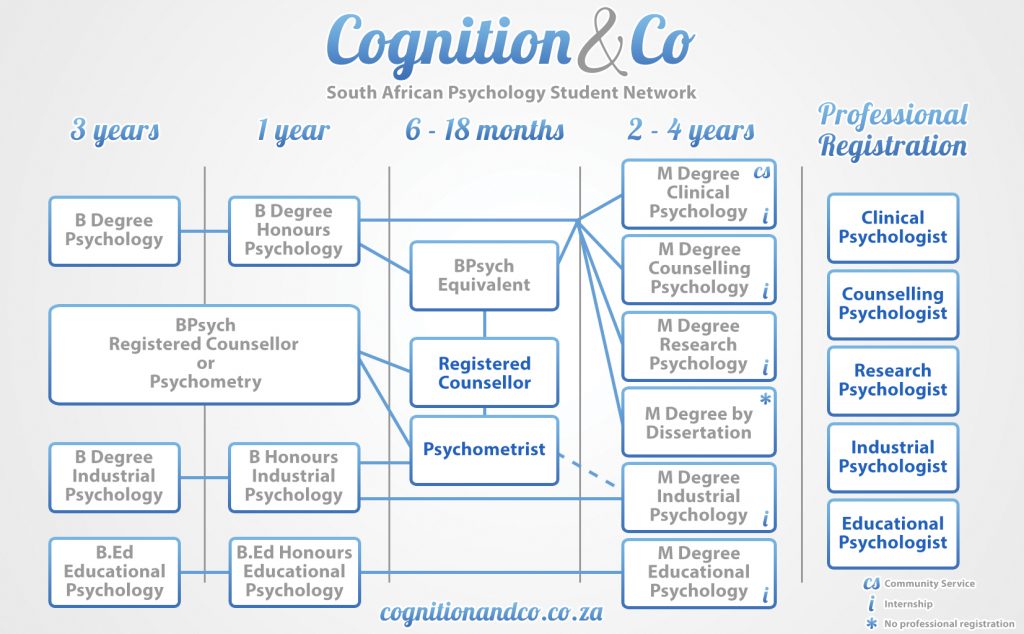
A number of mental health organizations maintain up-to-date, searchable databases of licensed therapists.
Your search could start as simply as typing in your ZIP code to generate a list of counselors in your area. You may also be able to search for specialists, like marriage and family counselors or therapists who focus on drug and alcohol use.
Some of the most commonly used online search tools include:
- American Psychological Association
- American Association of Marriage and Family Therapists
- Association of LGBTQ+ Psychiatrists
Your community may also have resources to help you. If you’re a student, your school might provide access to a counseling center.
If you’re employed, your human resources team might offer a list of therapists available through a workplace wellness or employee assistance program.
If you need counseling related to domestic or sexual abuse, you might be able to find group or individual therapy through a local advocacy organization.
If you want your faith to inform your treatment, you might consider reaching out to your church, synagogue, mosque, or other worship center for a list of licensed therapists affiliated with your faith.
If you’re looking for a therapist to help with a specific mental health condition, you might find local therapists through a national association, network, or helpline.
Here are a few examples of organizations that offer search tools to help you find a specialized therapist near you:
- National Eating Disorders Association
- Anxiety and Depression Association of America
- National Center for PTSD
If your job is a source of stress and anxiety, you might find local therapists through a professional organization.
Many of these organizations and trade unions have resources to help you identify professionals who can assist with mental health needs. For example, the International Association of Firefighters offers help with mental health, post-traumatic stress disorder (PTSD), and substance use.
Access to culture-conscious therapists is important for your well-being. Here are some resources to consider when looking for a therapist:
- The Yellow Couch Collective, an online support group for Black women
- Therapy for Black Girls
- Black Mental Health Alliance
- The National Asian American Pacific Islander Mental Health Association, a nonprofit dedicated to the mental health and well-being of the Asian American and Pacific Islander communities.
- WeRNative, which provides Native American youth with tools for holistic health and growth, including mental health resources.
- Therapy for Latinx
What do you want to accomplish in therapy? Studies have found that when you and your therapist both work together toward the same goals, your outlook will be better.
If you think some type of medication may help with your symptoms, you’ll want to find a psychiatrist or practitioner who can prescribe medications.
If you’ve heard that cognitive behavioral therapy (CBT) or eye movement desensitization and reprocessing (EMDR) therapy have been effective for others with your condition, you’ll want to look for a therapist with certifications or specialized training in those treatment approaches.
If you want to be part of a supportive network of people who understand your experiences, you may want to consider looking for a therapist who’s involved with support groups or group therapy sessions.
Your goals may change as you work with a therapist. It’s OK to talk with your therapist about changing the direction of your treatment plan as your needs evolve.
Talkspace and Betterhelp both offer tools to help you explore the kind of therapy you want. They can also match you with a licensed, accredited therapist you can work with online or via phone.
Some people find a digital therapy platform to be more convenient and more affordable than in-person therapy. Weekly sessions range from $35 to $80 for online therapy.
At least one study found that people with depression felt that their symptoms improved after online sessions. It’s worth noting, however, that two of the researchers involved with this study were consultants or employees of the digital therapy provider used.
When you meet your therapist, whether it’s online, on the phone, or in person, it’s not uncommon to completely forget every question you wanted to ask.
To make sure you have the information you need to make a good decision, keep paper and a pen, or a notes app, handy for a few days before your meeting. Jot down questions as they come to you.
The American Psychological Association suggests a few questions for you to consider asking your therapist during your first session:
- Are you a licensed psychologist in this state?
- How many years have you been in practice?
- How much experience do you have working with people who are dealing with [the issue you’d like to resolve]?
- What do you consider to be your specialty or area of expertise?
- What kinds of treatments have you found effective in resolving [the issue you’d like to resolve]?
- What insurance do you accept?
- Will I need to pay you directly and then seek reimbursement from my insurance company, or do you bill the insurance company?
- Are you part of my insurance network?
- Do you accept Medicare or Medicaid?
The Anxiety and Depression Association of America adds questions like these:
- If I need medication, can you prescribe it or recommend someone who does?
- Do you provide access to telehealth services?
- How soon can I expect to start feeling better?
- What do we do if our treatment plan isn’t working?
Note: If you’ve ever been abused by someone in authority or affected by historic trauma or racism, you may want to ask questions that help you find out whether a potential therapist is culturally informed and sensitive to your experiences.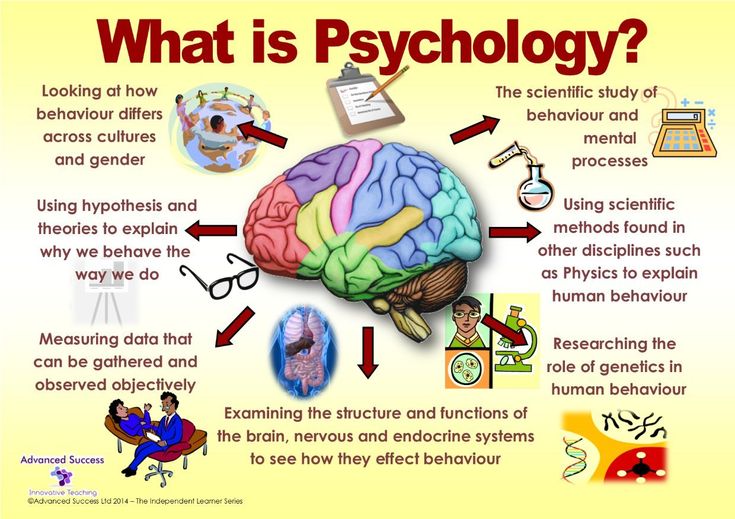
Pay attention to red flags
Regardless of whether you see a therapist in-person or virtually for the first time, you’ll want to pay attention to any factors that make you feel uncomfortable. Therapy is meant to be a welcoming and accepting space for any and all feelings that come up.
Some red flags to potentially look out for include:
- Does the room make you feel physically uncomfortable? Does it feel private and secure?
- Are you experiencing overwhelming feelings of anxiety or panic? Some anxiety or nervousness is understandable, but you’ll want to communicate to your therapist if you’re experiencing symptoms of an anxiety or panic attack.
- Do you feel comfortable telling your therapist anything? Are they making you feel judged or uneasy in any way?
- Is your therapist completely present with you throughout your session?
No matter how many professional accreditations your therapist has, your own feelings of trust and comfort should be your top priority. Will therapy be uncomfortable from time to time? Possibly. After all, you’ll likely be discussing difficult, personal topics.
Will therapy be uncomfortable from time to time? Possibly. After all, you’ll likely be discussing difficult, personal topics.
But if you feel uncomfortable with your therapist for any other reason, it’s all right to look for someone else.
You don’t need a reason to switch therapists. It’s enough that you don’t feel comfortable.
Here are a few things to notice as you talk with your therapist:
- Does the therapist interrupt you, or do they listen carefully to what you’re saying?
- Does the therapist respect your time by being prompt to appointments?
- Does the therapist brush off or invalidate your concerns?
- Do you feel seen, heard, and respected during your session?
Teletherapy, which is therapy done remotely over the phone or via videoconferencing, makes it easy to explore therapy and its options. It’s convenient, and studies have shown that therapy conducted over video chat can be just as effective as in-person therapy.
Here are some options.
BetterHelp
This option has over 12,000 licensed professionals in its network, including psychologists, clinical social workers, and marriage and family therapists. BetterHelp therapists can help people with anxiety, depression, addiction, grief, and other issues.
Read our full review of BetterHelp here.
Get 20% off your first month
Get started with BetterHelp
Talkspace
With over 3,000 licensed therapists, Talkspace offers options for people with a wide range of needs, from depression to PTSD. They offer counseling for individuals, couples, and teens.
Read our full review of Talkspace here.
Get $100 off using code SPACE
Get started with Talkspace
Amwell
If you’re looking for physical and psychological health services, with doctor or therapist visits available 24/7, Amwell is a great user-friendly platform. Couple and individual therapy sessions are available for trauma, depression, life transitions, and more.
Read our full review of Amwell here.
Get started with Amwell
Teen Counseling
This is a great resource for teens ages 13 to 19 and caregivers. The therapists in Teen Counseling specialize in issues affecting teens, such as stress and eating disorders. The platform offers live chats, phone calls, videoconferencing, and messaging with licensed therapists.
Read our full review of Teen Counseling here.
Get started with Teen Counseling
Pride CounselingThis option offers safe and supportive mental health services for LGBTQ+ people. Pride Counseling matches you with a counselor who fits your therapy objectives and needs.
Read our full review of Pride Counseling here.
Get started with Pride Counseling
| Pricing | Insurance coverage | Highlights | What it’s best for | |
|---|---|---|---|---|
| BetterHelp | Cost ranges from $60 to $90 a week depending on your plan and how often you see your therapist. You’ll be billed monthly. You’ll be billed monthly. | Not accepted | – You can talk to your therapist via text, live chat, phone call, and video – It’s easy to change therapists – There’s financial aid available | Quick and easy access to licensed professionals |
| Talkspace | $276 to $396 per month depending on which plan you choose. | Some insurance plans may cover Talkspace costs | – No contracts, so you can cancel at any time – Couples therapy and psychiatry services are also available | Comprehensive mental health care |
| Amwell | Therapy visits start at $99 per session. | Accepted by some insurance networks | – Appointments are available 24/7 – You can choose your therapist | Low cost counseling |
| Teen Counseling | Ranges from $60 to $90 per week. | Not accepted | – Messages remain private with some exceptions – A great option for teens who are hesitant about beginning counseling | Teenagers who are interested in starting counseling |
| Pride Counseling | $60 to $90 per week. | Not accepted | – All counselors have a minimum of 3 years and 1,000 hours of experience providing therapy – You can switch therapists at any point | Members of the LGBTQIA+ community |
In the event that you meet with a therapist for the first time and decide that they’re not a good match for you, know that that’s completely fine. It’s totally normal and happens to many people who are looking for the right therapist for them. It can take some time to find someone that you feel completely comfortable with.
At the end of your first session, your therapist may want to schedule another appointment. If you know that you do not want to meet with them again, you can let them know that while you appreciate their time, you don’t think that it’s a good match at this time.
If you feel uncomfortable communicating this to them face-to-face, you can also text, call, or even email them to let them know you’re no longer interested in seeing them.
Regardless of how you choose to tell them, it’s important that you do inform them, instead of not showing up to your next appointment without an explanation. Many therapists have cancellation policies, so make sure you cancel at least 24 hours before your appointment to avoid a fee.
Therapists and psychiatrists aim to treat mental health conditions and improve emotional well-being. But there are key differences between the two professions.
Therapists
Therapists are licensed mental health professionals, including psychologists, social workers, and counselors. They aim to help people manage their emotions, build healthier relationships, and understand themselves better.
Therapists use talk therapy and behavior modification techniques to help people make positive life changes. During therapy, they can assess, diagnose, and treat mental health conditions.
Therapy typically suits people who want to learn more about themselves and make long-lasting changes in their lives. It may also help people with mild mental health conditions.
It may also help people with mild mental health conditions.
Most therapists have a master’s degree and may have a doctorate. All licensed therapists have to have at least a master’s degree.
Generally, therapists can’t prescribe medications. But in some states, psychologists with specialist pharmacology training can prescribe certain medications.
Psychiatrists
Psychiatrists are medical doctors who specialize in diagnosing and treating mental health conditions. Because they hold medical degrees, psychiatrists can prescribe medication.
Psychiatrists use a combination of talk therapy and medication to treat mental health conditions. A psychiatrist may be the better option for people who experience more severe symptoms and who need medication to help treat them.
How much does therapy cost?
The cost of therapy can depend on the type of therapy, the therapist’s experience, and whether you’re talking with a therapist in person or through teletherapy.
Therapists may charge between $100 and $200 per session for in-person appointments. But in bigger cities, therapy can cost more. Some therapists may offer sliding scale rates. If you have insurance, you may pay a portion of the fee depending on your coverage.
Teletherapy is generally less costly. The price per session starts at around $50. Some platforms offer unlimited therapy with a weekly or monthly subscription.
What types of therapy are there?
There are many different types of therapy, and the type you choose will depend on your needs and preferences. Some common types include:
- Cognitive behavioral therapy (CBT): CBT helps you identify and change negative thinking patterns and behaviors.
- Dialectical behavioral therapy (DBT): DBT combines elements of CBT with structured skill-building in mindfulness, distress tolerance, emotion regulation, and interpersonal effectiveness.
- Psychodynamic therapy: This type of therapy focuses on your unconscious thoughts and emotions.

- Interpersonal therapy: The focus of interpersonal therapy is on your relationships with other people.
- Family therapy: This type of therapy helps families resolve conflict and improve communication.
- Group therapy: In this type of therapy, you meet with a group of people who share similar experiences.
- Art therapy: This type of therapy uses art to express emotions and help process trauma.
- Eye movement desensitization and reprocessing (EMDR) therapy: EMDR is an interactive form of psychotherapy used to relieve psychological and trauma-based stress.
What are the benefits of therapy?
Therapy has several benefits, including improving mental health, resolving personal issues, and increasing self-awareness. Therapy can also help people learn new coping skills and manage stress.
Some people see therapy as a way to prevent mental health issues or as a way to address underlying causes of mental health conditions. Others use therapy to work through traumas or difficult life events.
Others use therapy to work through traumas or difficult life events.
Therapy is an effective treatment for many mental health conditions, including anxiety, depression, PTSD, and eating disorders.
Whether you’re coping with grief, trauma, or relationship issues, or want treatment for a mental health condition, finding a helpful therapist can make a big difference in your journey.
To find a therapist who’s a good fit, start by considering practical matters like licensure, insurance coverage, location, and specialties.
You may find that friends, colleagues, and healthcare professionals are a good source of referrals. You may also find options by using search tools provided by organizations that address your specific concerns.
When you’ve narrowed down your choices, you may find it helpful to think about your goals and questions. This way you can be sure you and your therapist are well matched and aligned on your treatment plan.
Ultimately, finding the right therapist is a personal matter. Human connection is at the heart of effective therapy, and you can build that sense of connection whether you talk with your therapist in person, on the phone, or online.
Human connection is at the heart of effective therapy, and you can build that sense of connection whether you talk with your therapist in person, on the phone, or online.
Where to find a good psychologist. And where better not to look - Personal experience on vc.ru
This is my third article about the search channels for a psychologist. Earlier, I already wrote about what is wrong with online services for the selection of psychologists and about the dirty tricks of free consultations.
856 views
Today I am talking about other channels:
- Internet ratings of psychologists
- Appeal to media psychologists
- Word of mouth
- Pages in social networks and personal websites of psychologists
Ratings of psychologists
Entire websites can be devoted to psychologists' ratings (such as "the best psychologists in such and such a region") or they can exist as sections of psychological websites. It is important to understand how and by whom such ratings are compiled. As a rule, the rating is based on the usefulness of a psychologist not for clients, but for the rating compiler .
It is important to understand how and by whom such ratings are compiled. As a rule, the rating is based on the usefulness of a psychologist not for clients, but for the rating compiler .
For example, a resource positioning itself as the site of psychologists No. 1 (I won’t mention the name, many people know it) makes a rating based on 12 parameters, of which the most important are: financial support for sites, frequency of visits and activity on the forum.
There are sites that directly indicate how much it costs to place in the top three or top ten. That is, such ratings have nothing to do with the professional qualities of a psychologist.
What to look for:
If you use rating sites when choosing a psychologist, pay attention to whether such a site has a section "For psychologists". And, if there is, are there conditions and the cost of placement in the rating that are not related to professionalism.
Media show psychologists
The popularity of media psychologists is very high. The cost of their consultation can exceed hundreds of thousands. Is their help really that valuable?
The cost of their consultation can exceed hundreds of thousands. Is their help really that valuable?
Everything here is very individual and different. The line between a media show psychologist and a professional psychologist leading his own social network is not always obvious. The criterion can be your assessment of what the psychologist focuses on: on the form or on the content. And, if on the form, are you ready to pay for it.
Things to keep in mind when contacting a media psychologist:
- The skills to effectively present yourself to the public and the skills to provide psychological support are different skills.
- Filming, especially spectacular ones, requires attention, energy, money and time. Is there time left for quality work with clients and gaining experience?
Word of mouth
Generally speaking, this is a good criterion for the quality of a psychologist's work. Much more reliable than website reviews as it is a personal recommendation. By giving a recommendation, your friend is trying to help you, not to promote the psychologist.
Much more reliable than website reviews as it is a personal recommendation. By giving a recommendation, your friend is trying to help you, not to promote the psychologist.
Things to look out for:
- What fits your friend perfectly may not necessarily work for you. There is "chemistry", personal preferences, etc. Check.
- In such cases, it is usually possible to talk to a psychologist before scheduling a consultation, to discuss your problem in advance, to understand how the psychologist is supposed to help you in solving it. It makes sense to take advantage of this opportunity.
Psychologists whose social media channels you like
Here I mean those media psychologists who are “about the content”. This channel is probably the most reliable - you can read the publications of a specialist for a long time and look closely.
What to pay attention to:
- The same as in the previous case: your well-being, inner comfort and the effectiveness of your work.
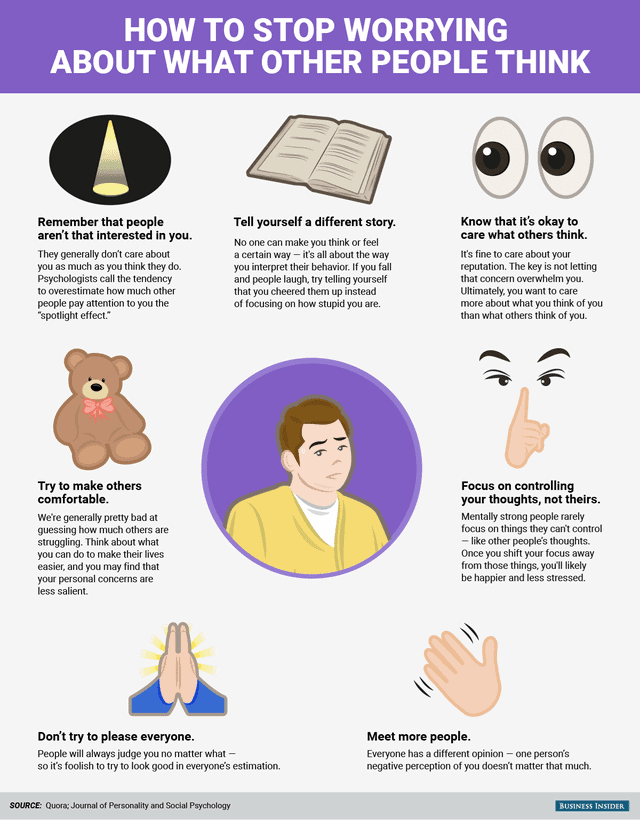
And finally, a simple rule. Do you know how to distinguish effective work with a psychologist from a waste of time and money? If as a result of working with a psychologist your health, financial condition and / or relationships improve, then this is effective work. Otherwise, it's bullshit.
Sign up for a personal consultation here
Where to find and how to choose a psychologist
How to choose a good psychologist? This is the first question that arises in a person when he comes to the idea that he needs help in dealing with anxiety, stress, loneliness, depression, relationship problems or neuroses. Everyone has heard of the specialties "psychiatrist", "psychotherapist", "psychologist" and "psychoanalyst". Since their names have one root, for a person who is far from medicine, all these terms are combined into one concept: "doctor for the soul." The layman, as a rule, does not see the difference between the specifics of the activities of each of the specialists, but it exists. We will tell you what each “heals” and which of them you need to contact in certain situations.
We will tell you what each “heals” and which of them you need to contact in certain situations.
What is the difference between a psychiatrist, psychotherapist, psychoanalyst and psychologist?
“Psycho” is translated from Greek as “soul”, from which we can immediately conclude that all four specialists are directly related to mental, that is, psychological problems. To begin with, it is necessary to give an interpretation to the four areas in which psychiatrists, psychotherapists, psychoanalysts and psychologists work.
Let's start with the broadest concept.
- Psychology is a science of the soul that combines natural-scientific and humanitarian approaches, studying the laws of the emergence, development and functioning of the human psyche or individual groups of people. Now let's move on to the rest of the terms.
- Psychiatry is a separate branch of medicine, the main purpose of which is the study and treatment of mental disorders.
 Psychiatrists prescribe medication and make a diagnosis. Treatment with drugs is called pharmacotherapy, and non-drug treatments are called psychotherapy.
Psychiatrists prescribe medication and make a diagnosis. Treatment with drugs is called pharmacotherapy, and non-drug treatments are called psychotherapy. - Psychotherapy involves treatment using psychological influences: conversations, exercises and techniques. In order for a specialist to be able to practice psychotherapy, he needs to undergo advanced training in one of its areas. Such advanced training can be passed by both a psychiatrist and a psychologist. But officially only a doctor can be called a psychotherapist in our country. At the same time, in the West, both a doctor and a psychologist, and a social worker, if he has undergone such advanced training, can be called that.
- Psychoanalysis is one of the methods of psychotherapy, which is based on the theory of the same name by Sigmund Freud, the founder of all current psychotherapy and one of the most famous psychologists in the world. The technique is still controversial in scientific circles and is often subjected to harsh criticism.

Other well-known areas of psychotherapy include gestalt, systemic family, cognitive-behavioral, client-centered, body-oriented and many others. Approaches differ in the perception of the causes of psychological problems, as well as in approaches to their treatment.
What does a psychologist do?
Psychology is a large science that is classified into a dozen different areas. It is closely interconnected with a number of related disciplines: sociology, philosophy, economics, biology and medicine. Psychologist is a broad concept that is applied to a specialist who studies the logic of mental processes. He has no medical background and is not a doctor. That is why one cannot literally use the term "treatment" in relation to the set of techniques that this specialist uses to help the client. A psychologist can have different specializations: for example, children's or family. A psychologist cannot make a diagnosis or prescribe pills, but he helps not only to solve the client's existing problems, but also to prevent the occurrence of serious disorders.
The psychologist cannot make a diagnosis or prescribe pills, but he helps not only to solve the client's existing problems, but also to prevent the occurrence of serious disorders.
How does a psychotherapist work?
Before choosing a psychotherapist, try to relate your problem to his competence. Someone knows how to work well with emotional experiences, someone with obsessive thoughts, and someone with family difficulties. Each specialist has limitations of his competence and must be aware of them.
The key task of any psychotherapist is to help the client understand and formulate the problem and find resources to solve it. To do this, he can use different techniques, techniques, give homework, talk with you and give interpretations to your words. A psychiatrist-psychotherapist can also prescribe medications based on the psychological state you are in.
Freud's legacy - psychoanalysis
A psychoanalyst is always a psychologist, but not every psychologist can be a psychoanalyst. By analogy, we can say that a surgeon is always a doctor, but not every doctor can call himself a surgeon. The psychoanalyst is a particular concept, and the psychologist is a general one. This specialist works with various phobias, obsessions, inner feelings and crises.
By analogy, we can say that a surgeon is always a doctor, but not every doctor can call himself a surgeon. The psychoanalyst is a particular concept, and the psychologist is a general one. This specialist works with various phobias, obsessions, inner feelings and crises.
Psychoanalysts, unlike psychiatrists, cannot diagnose or prescribe medication. The essence of their methodology lies in the verbal impact on the client, that is, any problems are solved through an open dialogue.
Where to look for a psychologist and what should you pay attention to when choosing?
How to find a good psychologist? The best assessment of a specialist's qualifications will be a diploma of his education and practical professional training, which includes learning various methods and working under the supervision of more experienced colleagues. For example, one cannot call a good psychologist a graduate of the Faculty of Psychology who has five years of teaching experience in this discipline, but is completely unfamiliar with therapeutic methods and has no experience working with clients under the supervision of an experienced colleague.

